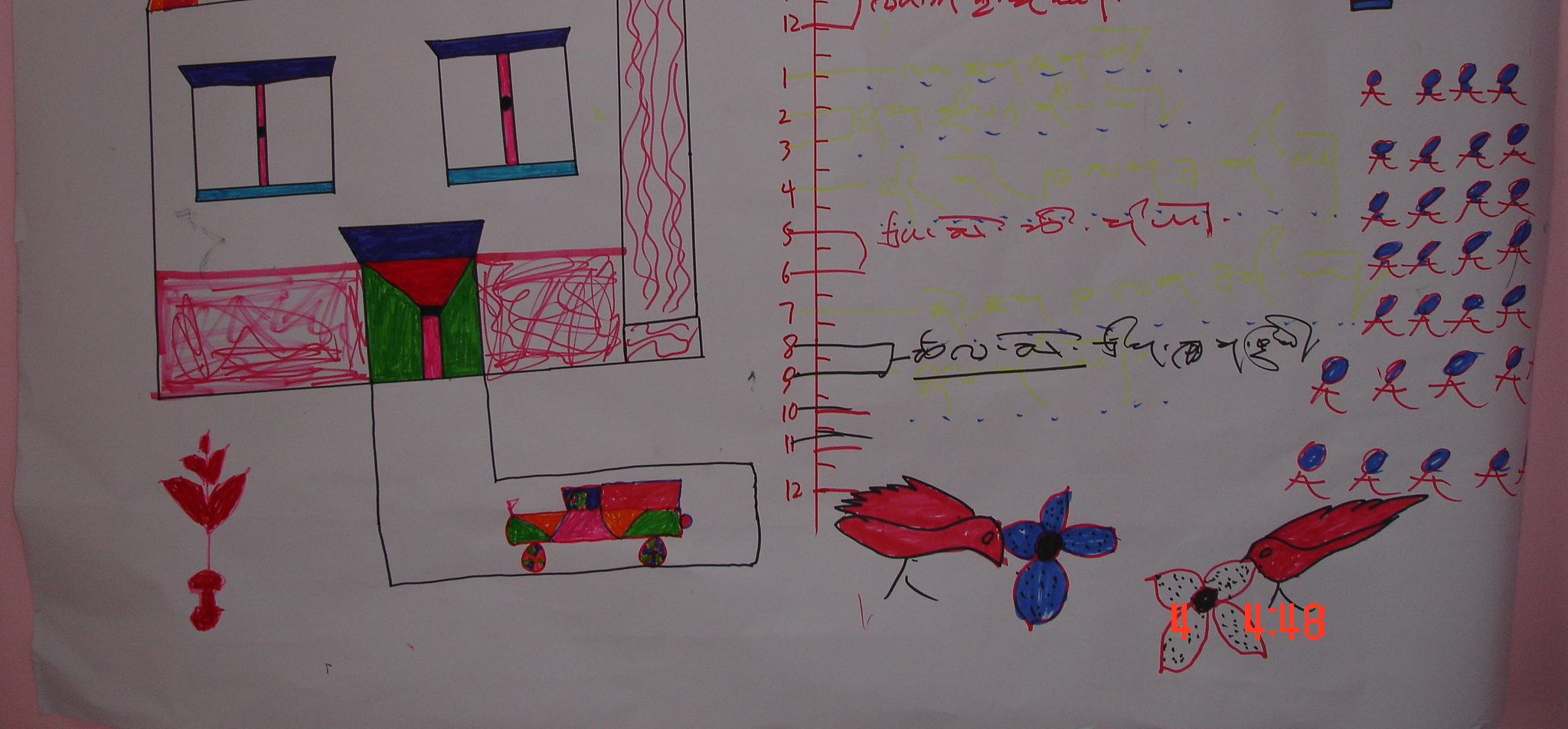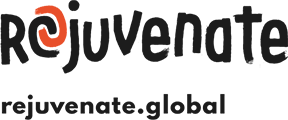Tag results for "Multi-method"
Multi-method research uses more than one method to collect and/or analyse data.
resource
Building Girls’ Power: Perspectives on theory and practice in working with adolescent girls
‘Building Girls’ Power’ is part of a multi-year project to document and amplify the theories and practices of political girls’ work. This publication offers three perspectives on how to centre […]
Learn Moreresource
Young Voices National Report: Submission to the Task Force examining age of marriage and other concerns, July 2020
In 2020, the Ministry of Women and Child Development of Government of India set up a Task Force to examine matters pertaining to the age of motherhood, particularly maternal mortality […]
Learn Moreresource
Claiming Citizenship: Case Studies of Adolescents Participating in Governance in South Asia
This study documents selected UNICEF South Asia and partner good practices in advancing adolescent participation in governance across local and national initiatives in India, Nepal and Bhutan. It also highlights […]
Learn Moreproject
Mobile Arts for Peace
Mobile Arts for Peace is a four-year international, multi-disciplinary project which provides a comparative approach on the use of interdisciplinary arts-based practices for peacebuilding in Kyrgyzstan, Rwanda, Indonesia and Nepal. It […]
Learn Moreorganisation
Terre des hommes
Terre des hommes (Tdh) is the leading Swiss organisation for children’s aid. Through their health, protection and emergency relief programmes, they provide assistance to over four million children and their […]
Learn Moreproject
Resilient Youth in Stressed Environments (RYSE)
Resilient Youth in Stressed Environments (RYSE) is a 5-year multinational research project that explores patterns of resilience among young people in changing environments. Research sites include communities involved in oil […]
Learn Moreresource
Think piece: Tanzanian children’s experience of violence – implications for practice and programming
This think piece explores the implications for programming of a piece of research that explored with children their experience of harm in school settings and started to investigate whether punitive practices […]
Learn Moreproject
¿Cuál es la verdad?
This project focuses on Quibdó, the capital of Chocó in the Colombian Pacific: a remote area disproportionately affected by armed conflict and home to mainly Afro-Colombian and indigenous populations who […]
Learn Moreresource
Participatory digital methodologies with marginalised young people in “fragile” contexts. A case study from Colombia during the COVID-19 pandemic
This briefing is linked to the research project ¿Cuál es la verdad?. The project brought together young people, researchers from Colombia and the United Kingdom, artists, educators and Civil Society […]
Learn Moreresource
YOUR World Research Insecurity and Uncertainty: Marginalised youth living rights in fragile and conflict affected situations in Ethiopia and Nepal International Report on Findings and Impact
Youth Uncertainty Rights (YOUR) World Research has carried out detailed large scale qualitative and participatory research with over 1000 of the most marginalised young people across eight fragile environments in […]
Learn Moreproject
YOUR world research – Insecurity and uncertainty: Marginalised youth living rights in fragile and conflict affected situations in Nepal and Ethiopia
Youth Uncertainty Rights (YOUR) World Research has carried out qualitative and participatory research with over 1000 of the most marginalised young people across eight fragile environments in Ethiopia and Nepal. […]
Learn Moreorganisation
CPC Learning Network
The CPC Learning Network convenes academics, policymakers, and practitioners to promote innovative research, nurture communities of learning, and build the next generation of researchers and advocates for children and families […]
Learn Moreorganisation
Children Unite
Children Unite is a registered, UK-based charity that promotes participatory approaches to working with exploited children. Since 2010 Children Unite has worked in over 15 countries in Africa, Asia and […]
Learn Moreorganisation
Child Frontiers
Child Frontiers is a consulting company that promotes the care, well-being and protection of children. They provide a comprehensive package of services to development and humanitarian agencies. Their portfolio of […]
Learn Moreproject
(Re)Connect the Nexus (RCTN)
Recent research about the food-water-energy nexus has tended to focus on flows (e.g. between producers and consumers) and ways of governing the nexus. However, there is a real need to […]
Learn Moreproject
Young Lives
Young Lives was established as an international study of childhood poverty in 2002 when the project started to follow the lives of 12,000 children in Ethiopia, India (in the states […]
Learn Moreproject
VoiceMore
VoiceMore is War Child’s youth advocates development programme which empowers young people affected by armed conflict to share their experiences and take action to combat issues impacting them. Groups discuss […]
Learn Moreproject
Social Cash Transfers, Generational Relations and Youth Poverty Trajectories in Rural Lesotho and Malawi
This three-year collaborative research project has generated evidence about the ways in which social cash transfer (SCT) schemes intervene in and transform the structural power relations that underlie the reproduction […]
Learn Moreproject
Empowering Children through Visual Communication
This research project explores how visual means could be used to improve communication amongst children and between children and adults in the primary school. Drawing on a methodology known as […]
Learn Moreproject
Children, Transport and Mobility in Sub-Saharan Africa
The project, conducted between May 2006 and April 2010, focused on the mobility constraints faced by girl and boy children in accessing health, educational and other facilities in sub-Saharan Africa […]
Learn Moreproject
CHAMPSEA (Child Health and Migrant Parents in Southeast Asia)
Migration is often part of an economically beneficial livelihood strategy for transnational families. For many of the sending countries in Southeast Asia, a growing proportion of transnational migrants, particularly in […]
Learn Moreproject
Averting “New Variant Famine” in Southern Africa: Building Food-Secure Rural Livelihoods with AIDS-Affected Young People
This project examined the impacts of the AIDS pandemic on the livelihoods of young people in rural Malawi and Lesotho. Several southern African countries with exceptionally high HIV prevalence have […]
Learn Moreproject
A Community-Driven Intervention to Reduce Teenage Pregnancy in Two Districts in Sierra Leone
Starting in 2012, the Inter-Agency Learning Initiative on Strengthening Community-Based Child Protection Mechanisms and Child Protection Systems established a community-owned and driven intervention to reduce teenage pregnancy in the Moyamba […]
Learn Moreresource
Young People, Media and Personal Relationships
This report is based on a research project entitled ‘Young People, Media and PersonalRelationships’, which was conducted by the authors between June 2001 and July 2003.The project was funded by […]
Learn Moreresource
Whither Children’s Hour? An Experimental PRA among Labouring Rural Children
A three day workshop was held in June 1994 with the stated objectives being to: Explore whether the different PRA methods could be used with children. Examine whether children have […]
Learn Moreresource
Violence and Vulnerability: Children’s Strategies and the Logic of Violence in Burundi
This study explores how children in conflict-affected Burundi deal with violence in their everyday lives. Focusing on schools as a context in which children are prepared for further roles in […]
Learn Moreresource
Ondeleni Children on Their Way: ‘Street children’ in Durban, Pasts Presents and Futures
This report documents a project aimed at informing a wider study on poverty from the perspectives of the poor by placing the ‘street child’ phenomenon within the context of urban […]
Learn Moreresource
Malunde: The Street Children of Hillbrow
Hillbrow is a densely-populated flatland in Johannesburg. A thriving, bustling area, it combines a cosmopolitan atmosphere with a high crime rate, begging, vagrancy, prostitution, drug running and theft. In this […]
Learn Moreresource
Listening to Smaller Voices: Children in an Environment of Change
The understanding of children’s roles in the household, how workloads are shared and how they alter over time and with different socio-economic and environmental conditions is crucial for development. Gender […]
Learn Moreresource
Learning from Young People About Their Lives: Using Participatory Methods to Research the Impacts of AIDS in Southern Africa
Methods of participatory research have become popular among children’s geographers as they are believed to enable young people to speak openly about their lives in unthreatening contexts. In this article, […]
Learn Moreresource
Learning from Children Exposed to Sexual Abuse and Sexual Exploitation: The Bamboo Project Study on Child Resilience
This report was written in January 2014 by Helen Veitch, Milan Dharel and Rakshya Ojha as part of a series of reports comprising the Bamboo Project – a three-country learning […]
Learn Moreresource
It is the Young Trees that Make a Thick Forest: A Report on Redd Barna’s Learning Experiences with Participatory Rural Appraisal in Kyakatebe, Uganda
Redd Barna Uganda is a non-governmental development organisation which focuses on child-centred community development. It is looking to Participatory Rural Appraisal to achieve more participatory planning. This report describes a […]
Learn Moreresource
Girl Education Challenge – GEC Wasichana Wote Wasome (Let All Girls Learn) Project Midline Evaluation Report
This is a midline report of the Wasichana Wote Wasome (WWW – ‘Let All Girls Learn’) project. The project aims to improve school enrolment, retention, attendance and learning outcomes for […]
Learn Moreresource
Evaluation of UNICEF-supported Child-Friendly Spaces in the Aftermath of Typhoon Haiyan (Yolanda) November 2013–November 2014
On 8 November 2013, super Typhoon Haiyan became one of the most powerful tropical storms ever recorded, striking the Visayas region of the Philippines and causing massive death and destruction. […]
Learn Moreresource
Evaluation of Child and Youth Participation in Peacebuilding
The Global Partnership for Children and Youth in Peacebuilding, launched in 2012, seeks to improve child and youth peacebuilding (CYP) practices, and to impact and strengthen the evidence base supporting […]
Learn Moreresource
Engaging Homeless Youth in Community-Based Participatory Research: A Case Study From Skid Row, Los Angeles
Growing evidence highlights the benefits to youth of involvement in community-based participatory research. Less attention has been paid, however, to the contributions youth can make to helping change health-promoting policy […]
Learn Moreresource
Empowering Children Through Visual Communication: A Research Project Funded by CfBT
This research project explores how visual means could be used to improve communication amongst children and between children and adults in the primary school. Drawing on a methodology known as […]
Learn Moreresource
Degrees of Participation: A Spherical Model the Possibilities for Girls in Kabul, Afghanistan
This is chapter 2.1 in the book Stepping Forward which addresses whether and how to involve girls in programmes for which their participation may be dangerous for them or their […]
Learn Moreresource
Culture, Environmental Experience and Environmental Awareness: Making Sense of Young Kenyan Children’s Views of Place
Few studies have explicitly examined the importance of cultural settings to children’s environmental awareness, especially in a non-Western context. In this paper, the author reviews those studies which have drawn […]
Learn Moreresource
Cultural Relativity in Ghana: Perspectives and Attitudes
This is chapter 4.4 in Stepping Forward. This chapter discusses some of the cultural values, views and attitudes that have helped to shape the lives of Ghanaians, and considers how […]
Learn Moreresource
Children’s Strategies for Creating Playspaces: Negotiating Independence in Rural Bolivia
This chapter draws on ethnographic research carried out in rural Bolivia which explores how children and young people negotiate their independence, in particular looking at the strategies they form to […]
Learn Moreresource
Child Protection: The Kotkai Experience
This draft report gives account of the Save the Children (UK) work on child protection 2001-2002, in the Kotkai afghan refugee camp, Pakistan. The work is described in three phases. […]
Learn Moreresource
Child Participation in Practice: SCF NWI’s Experiences in Programming
This paper examines three cases studies conducted by Save the Children Fund UK (SCF) North West India Programme Office (NWI) to give children the opportunity to express aspects of their […]
Learn Moreresource
Ask us Too! Doing Participatory Research with Disabled Children in the Global South
This article considers how disabled children and young people living in the global south can be included actively in research that explores their lives. While acknowledging the complex, theoretical dilemmas […]
Learn Moreresource
Approaches to Children’s Work and Rights in Nepal
Current economic and political trends present particular challenges for countries dealing with the development of industry without the social infrastructure needed to uphold citizens’ rights. As free trade demands competitiveness […]
Learn More





